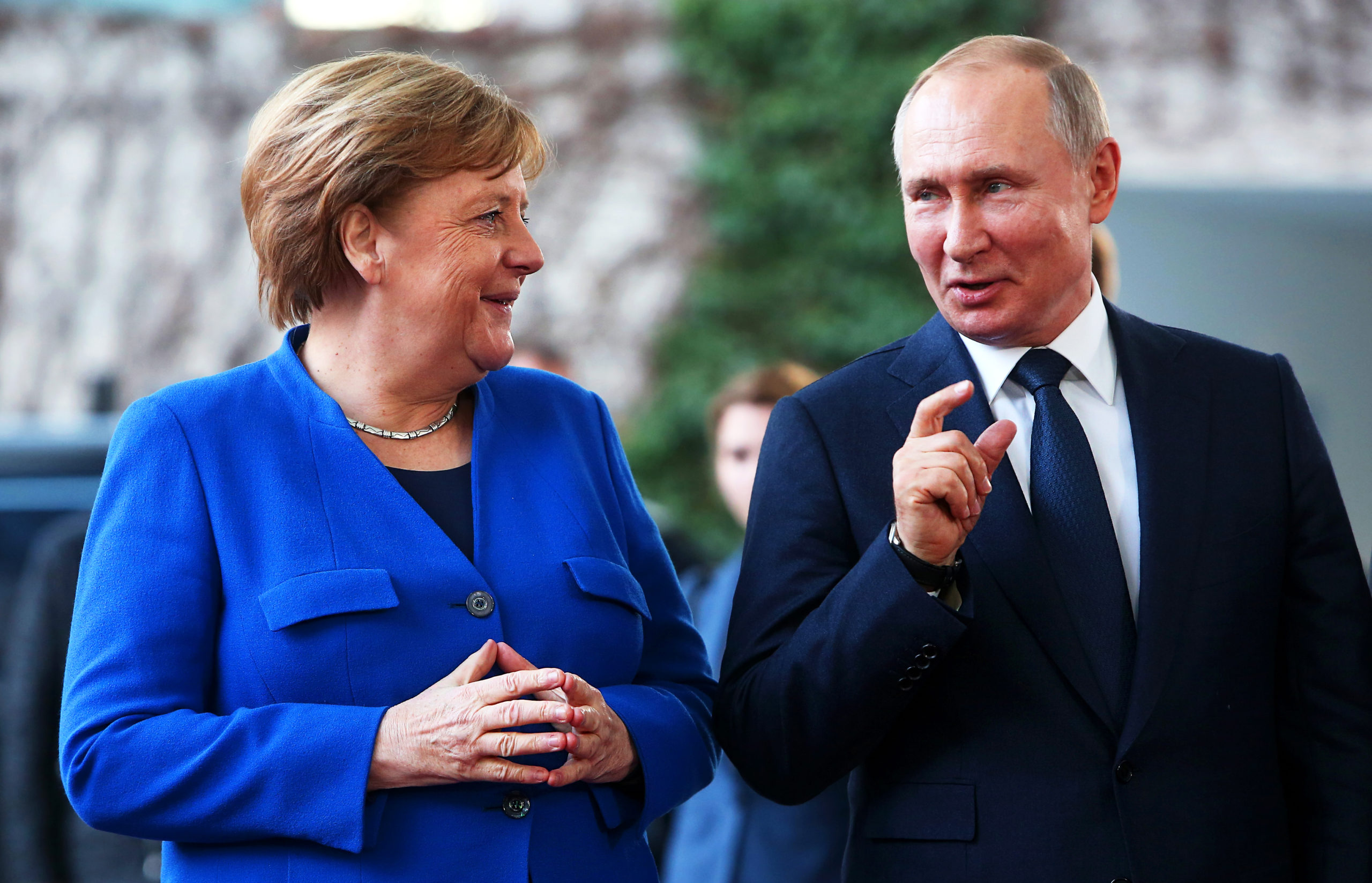The crisis on Poland’s border is also being felt by its western neighbour. Many of the 20,000 migrants estimated to have crossed into the EU via Belarus since the middle of October are headed for Germany and reaching its borders in increasing numbers. Yet the response in Berlin has been muted.
Last week, German chancellor Angela Merkel tried to intervene with a phone call to Moscow, from where Belarus might be reined in. She told Vladimir Putin that the situation was “completely unacceptable” as the “instrumentalisation of migrants against the European Union by the Belarusian regime is inhumane.” She ordered Putin to shorten Lukashenko’s leash.
Since then, hundreds of migrants have broken down sections of the border fence between Belarus and Poland. Polish border troops were blinded with strobes and lasers by Belarusian soldiers as the latter aided yet more migrants across. And the Polish Prime Minister, Mateusz Morawiecki, has pleaded for ‘concrete steps’ from NATO. It seems Merkel’s words fell on deaf Russian ears.
Lukashenko remains unimpressed. While seemingly reprimanded by Putin on Saturday for threatening to cut off gas pipes to Europe, some of which run from Russia through Belarus, he has been as belligerent as ever. He called the EU leaders ‘bastards’ and even demanded to be given nuclear-capable Iskander missile systems by Russia.
So why does Merkel think a phone-call to Moscow will change anything? Why does her foreign minister Heiko Maas imagine that Minsk will be impressed by a vague threat that the EU will act “decisively against the perfidious and inhuman behaviour of Lukashenko and his allies”?
The answer lies in the historically fraught Russo-German relationship. As the Russia expert John Lough has pointed out in his recent book, Germany’s Russia Problem, ‘any conflict with Russia is deeply discomforting, and arouses emotions that impede clear thinking and consistent action.’
Even Otto von Bismarck, who founded the German nation state in 1871, said that the secret to successful foreign policy was “a good treaty with Russia”. Since then, events in the 20th century have added darker layers to this complex relationship. The brutality of German crimes on the Eastern Front during the Second World War, in particular, has created a residual level of guilt in the German mind, while Russia’s role in aiding German reunification in 1989 has further complicated matters.
Raised in East Germany, Merkel herself spent the first three decades of her life being told about the debt Germans owe to Russia for their liberation from Nazism. She excelled in Russian at school and still speaks the language fluently. She famously has a portrait of Catherine the Great on her desk in the chancellery. Her admiration for Russia is deep and real.
This partially explains why the energy dependency on Russia is not met with alarm in Berlin. In the eyes of German business, economic ties bind Russia to Europe as much as the other way around. The German embassy in Moscow is the country’s biggest diplomatic outpost in the world and pays a huge body of staff to engage with every aspect of Russia.
But Berlin will have to wake up to the reality that Putin’s Russia has interests that are not aligned with Germany’s. A friendly phone-call to Moscow is not going to change that.
There is some hope that Merkel’s likely successor Olaf Scholz and his emerging centre-Left coalition might take a harder stance. Scholz has called for a new tougher ‘Ostpolitik’ towards Russia. Robert Habeck, co-leader of the Greens, already voiced support for arms sales to Ukraine, and his colleague Annalena Baerbock has indicated that she wants a more ‘principled’ foreign policy towards Russia and China due to their records of human rights issues.
Can a new German government really drive a stake into the old heart of German Russophilia? Perhaps the way the country responds to the situation in Belarus will offer the first clues.











Join the discussion
Join like minded readers that support our journalism by becoming a paid subscriber
To join the discussion in the comments, become a paid subscriber.
Join like minded readers that support our journalism, read unlimited articles and enjoy other subscriber-only benefits.
Subscribe